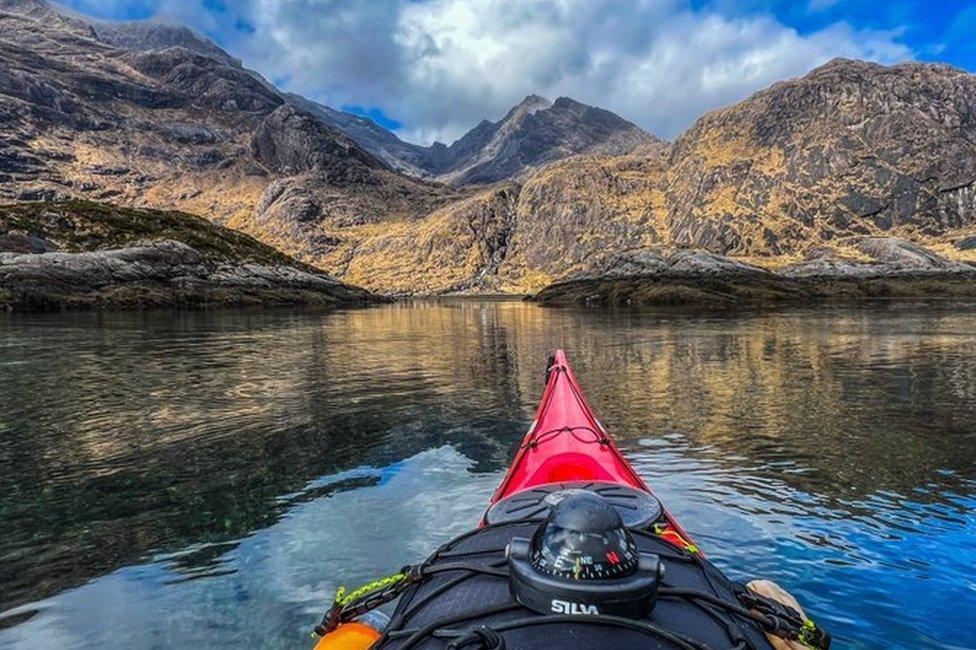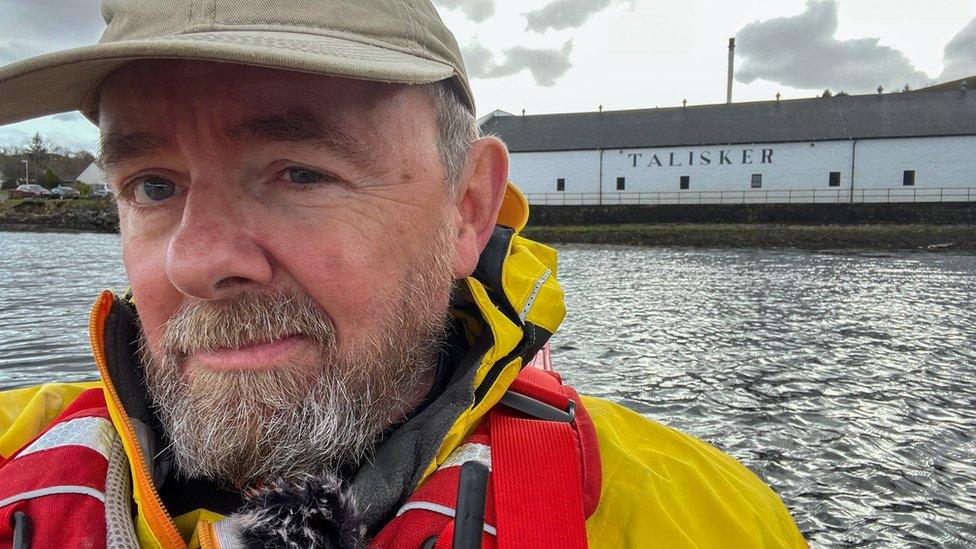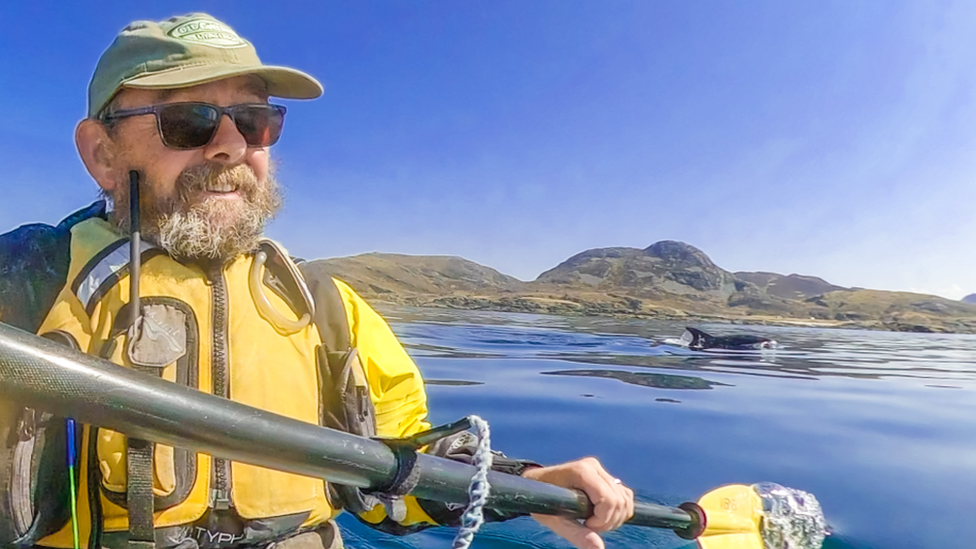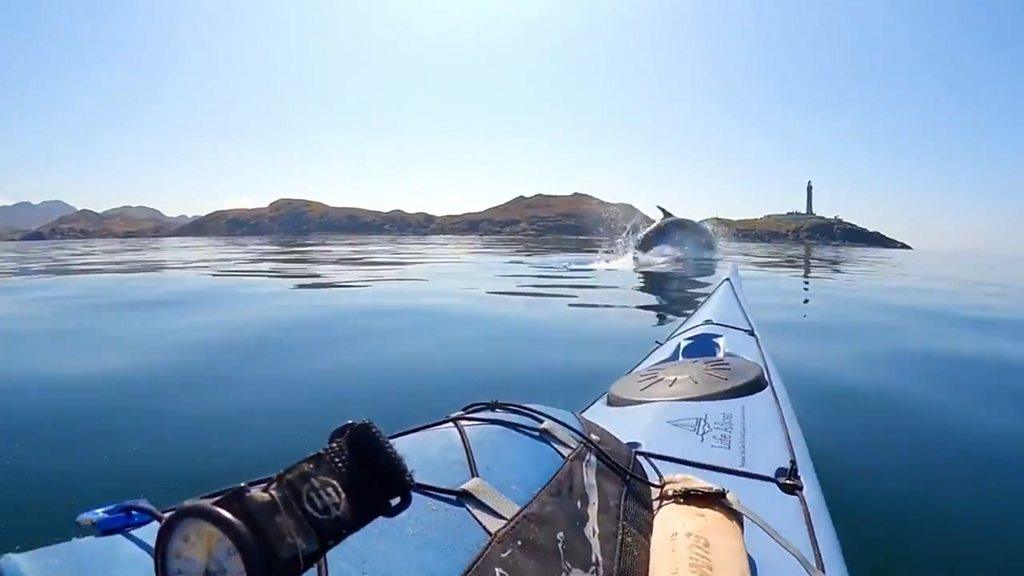Mental health blogger: 'Paddling around Scotland is a delight'
- Published

Nick described paddling into the "crucible" of the Black Cuillin mountains as "one of the highlights of my life".
When Nick Ray woke to find the right side of his face was paralysed, he thought he had suffered a stroke.
It threatened to bring to a premature end his year-long kayaking expedition around the coastline of Scotland.
But after being rushed from Skye to Raigmore Hospital in Inverness, medics diagnosed Bell's Palsy.
Now the 59-year-old is back on the water and he told BBC Radio's Good Morning Scotland that "every day is a day of delight".
Mr Ray, a kayaker and mental health blogger, set off on his journey round Scotland's coastline eight months ago.
He has said he wanted his trip, which he is documenting on social media, external, to be an "antidote" to doom and gloom.
And he plans to return home to Tobermory, Mull, for his 60th birthday on 28 August.
He told BBC Scotland that one of the most memorable moments of his trip came when he was paddling around the Isle of Skye earlier this month.
"I paddled into Loch Scavaig and the crucible of Cuillin ridge and the mountains were looming over me there," he said.
"It was an incredible day, absolutely superb, really took my breath away."
On Twitter, he described it as "one of the highlights of my life".

Nick Ray has enjoyed exploring the coastline of Skye
However, a health scare earlier this year threatened to end his journey months earlier than planned.
"I woke up one morning with a paralysed right side of my face and thought I'd had a stroke," he said.
He was taken from Skye to Inverness where he was eventually told he had Bell's Palsy - a temporary weakness or lack of movement in the face, which can be treated with a course of medication.
It was a "huge relief", he said.
He believes it was caused by an infection, rather than stress, and although he is back on the water, he is still suffering some tiredness.
"It doesn't feel stressful, in fact it feels different to the trips I've done in the past," he said. "I don't have an agenda. I'm not paddling to a timetable.
"So it's been a very relaxed experience and it's been a joyful experience because of all the people I've met on the way.
"I've received incredible kindness from complete strangers and.... they're always interested in the journey and what lies behind the journey.
"So I've really appreciated that. It's been a wonderful experience."
'Sea kayaking helps my mental health'
He said his expedition was partly about his own mental health problems. His depression has led to several hospital stays and an attempt on his life in May 2019.
The journey has been "hugely helpful", he said.
"Every day is something that I feel like I will remember to use when I'm facing challenges with my mental health in the future," he said.
"There's so many messages I can repeat to myself and the metaphor of the experience is very powerful.
"What's also been very helpful is chatting to people about mental health. A lot of people have been interested in my story, interested in what I have to say, and we have conversations about mental health, what recovery means.
"It's been really heartwarming from that point of view."
Related topics
- Published28 August 2022

- Published10 May 2021
